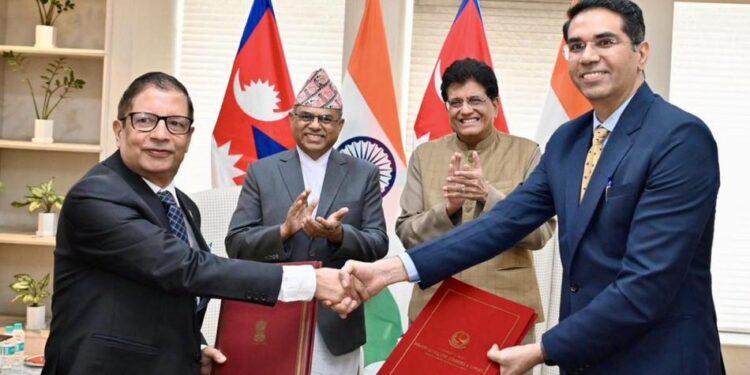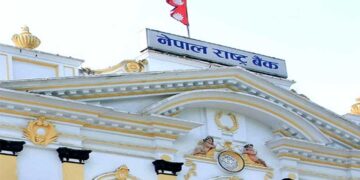India has agreed to allow Nepal to transport all types of bulk cargo through the Jogbani–Biratnagar border using the railway route, significantly easing the movement of rail-based freight from India’s Kolkata and Visakhapatnam seaports.
Until now, Nepal was allowed to use the railway service at the Biratnagar–Jogbani border point for only four types of bulk cargo at a time. Under the new agreement, rail connectivity along the Jogbani–Biratnagar rail link will now be available for both containerised and bulk cargo.
According to the Ministry of Industry, Commerce and Supplies (MoICS), Nepal and India signed a Letter of Exchange (LoE) on Thursday to amend the protocol under the bilateral Treaty of Transit. The signing took place during a meeting between Nepal’s Minister for Industry, Commerce and Supplies, Anil Kumar Sinha, and India’s Minister for Commerce and Industry, Piyush Goyal, in New Delhi.
As part of this new arrangement, India has also agreed to provide a similar facility for transporting bulk cargo from Kolkata and Visakhapatnam ports up to the Nautanwa–Sunauli border point, enabling direct rail access to Bhairahawa.
Nepal and India first signed the Treaty of Trade and Transit in 1960, with the most recent renewal taking place on June 1, 2023. The treaty, which regulates transit rights and routes between the two countries, is renewed every seven years.
Officials say the new understanding is expected to strengthen multimodal trade connectivity and expand Nepal’s trade with third countries. It is also projected to reduce transit time and costs, thereby facilitating smoother cross-border trade between the two neighbors.
During the meeting, Minister Sinha also asked his Indian counterpart to simplify the Bureau of Indian Standards (BIS) certification process, as Nepali exporters often face delays due to slow certification procedures.
The two ministers further discussed ongoing efforts to improve cross-border connectivity and trade facilitation, including the development of Integrated Check Posts (ICPs) and supporting infrastructure.
Currently, India allows Nepal to use its Kolkata and Visakhapatnam ports for third-country trade. Nepal has also requested access to Gujarat’s Mundra Port and Odisha’s Dhamra Port, but these requests have not yet been approved.










